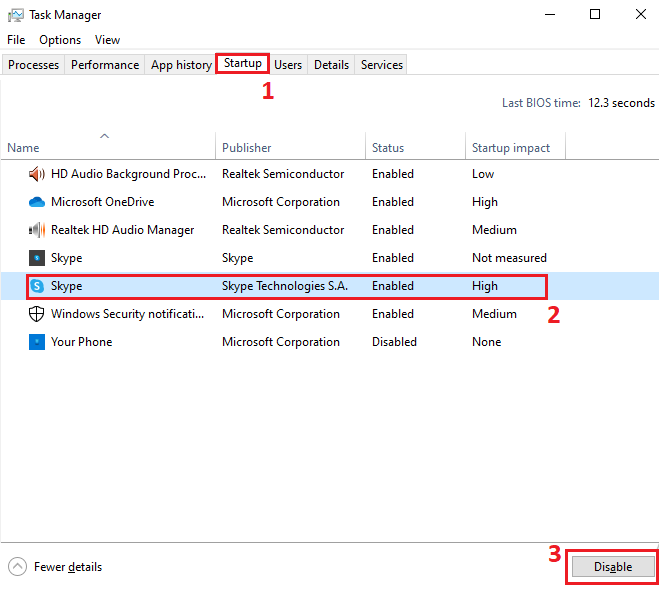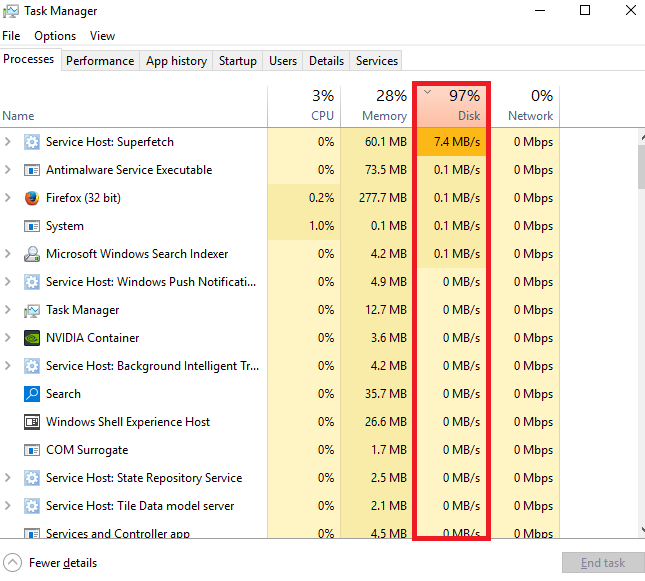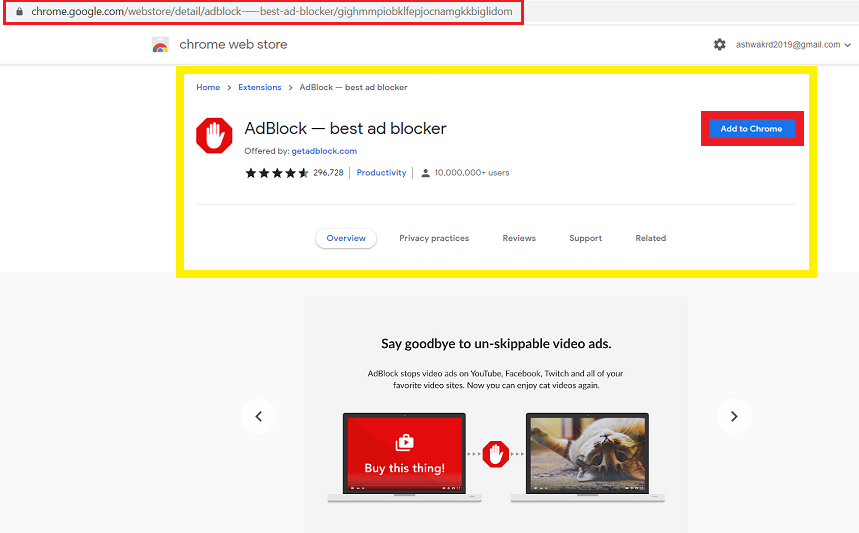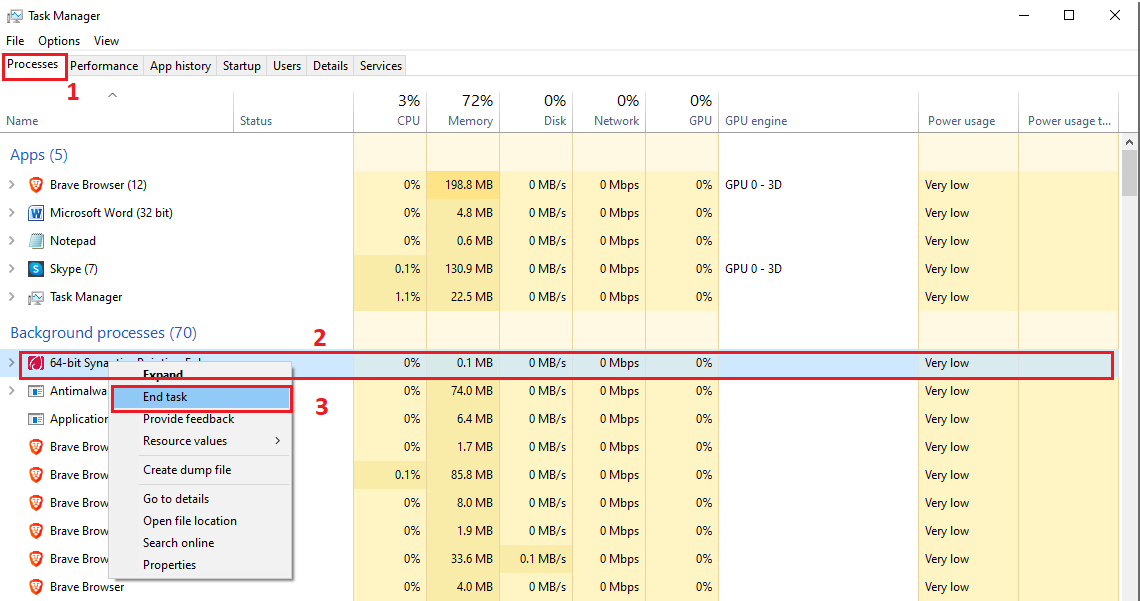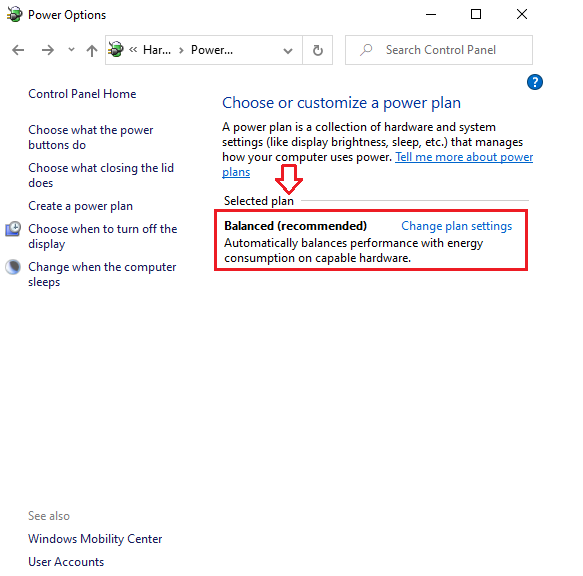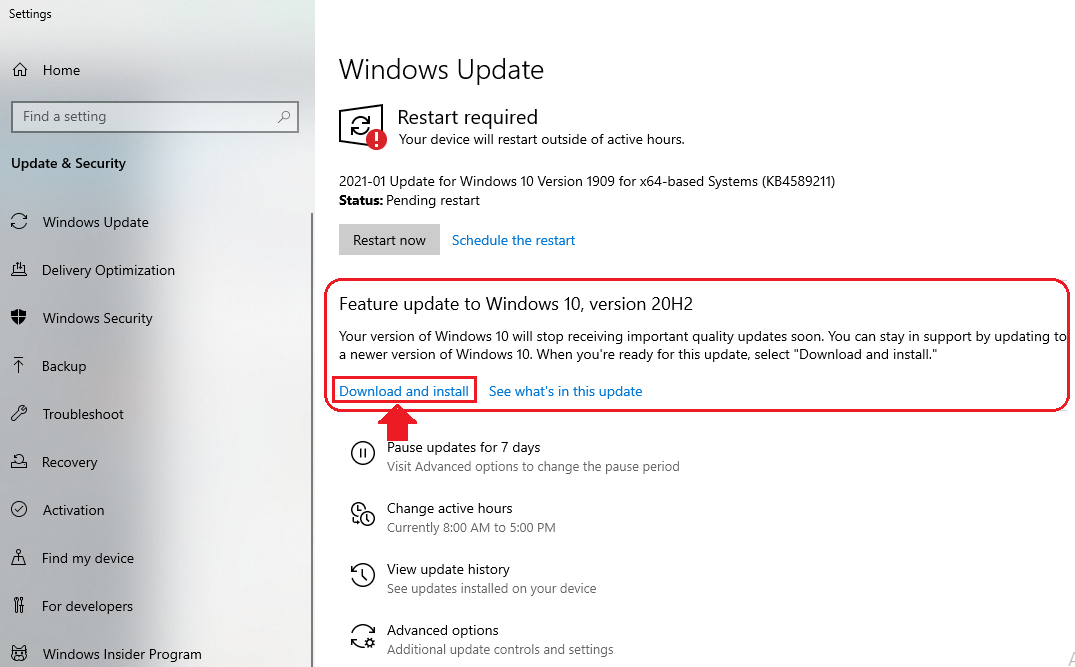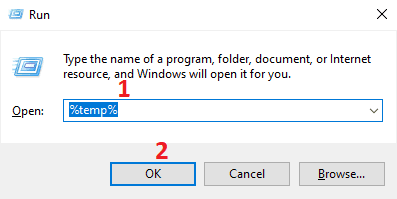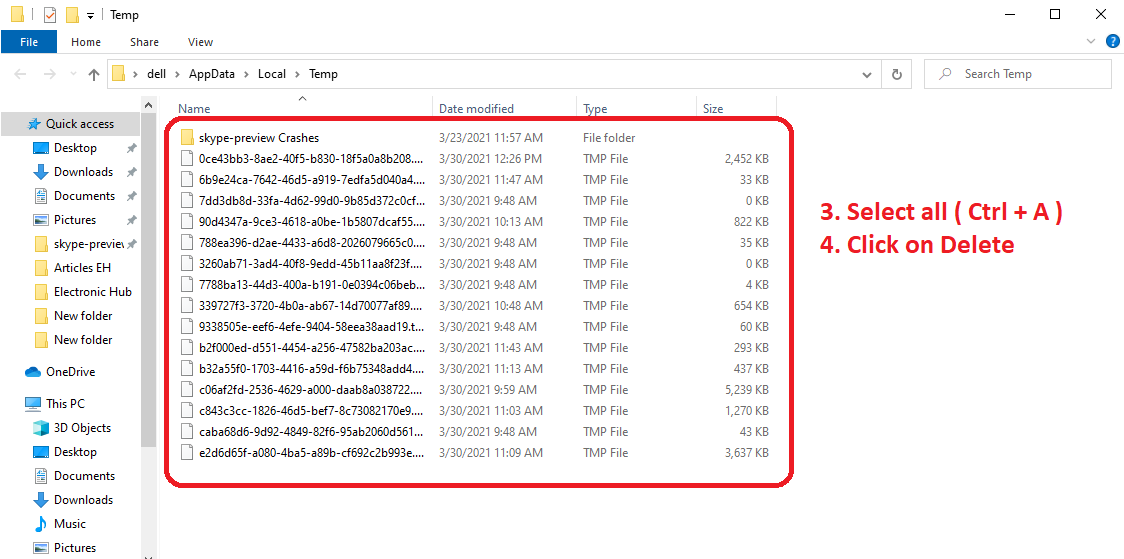If you often ask yourself “Why is my laptop so slow?”, you must be treating your laptop in the wrong way. Regardless of your PC’s configuration, there are certain things that everyone needs to maintain on their laptops to keep them working fast for longer. Well, if you have a very old laptop with you, upgrading it to a new one is a better option. We have some fixes if your laptop is very slow that you should try out.
How To Fix If Your Laptop Is Too Slow?
Learn how to optimize and troubleshoot hardware and software problems for faster performance of you Laptop.
1. You Have Too Many Startup Programs
Startup Programs can be a significant reason why your laptop takes so much time to boot up and work slow. As soon as you hit the power button on your laptop to turn it on, the startup programs launch automatically as well. The feature is highly useful as you can set the apps to launch automatically that you most frequently use. But, most people just ignore it and set many programs to launch at startup, which is wrong. This only puts up a load on your PC, and eventually slows down its performance.
Fix: It is very easy to see which of the programs on your laptop are set to launch at startup. You can simply go to the Task Manager by pressing Ctrl+Shift+Esc together. In the Task Manager, click on the Startup tab to see the list of all programs which are set to launch at startup. From here, you can either disable the unwanted programs or choose to disable all the programs at once by clicking on the Disable button given in the bottom right corner.
2. Your hard drive is 95% full
In our laptops, the operating system is designed to store some temporary files to make things load up faster. Such temporary files are stored on your computer’s hard drive. However, if the hard drive on your laptop is already about to full, there’s no space left for the temporary files to be stored on the laptop. This causes the laptop’s performance to downgrade to almost 50% which is a drastic change and well-noticeable by the users.
Fix: Making some space in your hard drive is not a hard task, you can simply go through the drive and delete the unnecessary data that you have stored over time. Any files which are not of your use anymore are just a burden on your laptop. You could even use some third-party software for deep cleaning of the drives. Otherwise, you can go to the drive’s properties and clean up the disk from there as well.
3. Your browser has too many add-ons
Most people like to use various kinds of browser extensions like ad-blockers, unit converters, etc. Using a few useful browser extensions is totally fine, but some people just tend to add every extension that they like, even if that’s useless. Don’t forget that such extensions eat up a lot of processing power since not all the extensions are well-optimized by the developers.
Fix: Every browser has a toolbar on the top where usually you can find all the extensions you have downloaded. Depending on the browser you use, generally, the extensions are present in the Add-on section. Hence, go to the extensions list and remove all the unnecessary ones from there.
4. You Don’t Have Enough RAM
You can’t upgrade all the components on your laptop for better performance, but hardware like SSDs and RAM is upgradeable. If you generally use your laptop for multitasking heavily, not having enough RAM on your laptop can interfere with your workflow.
Fix: Most laptops come with an additional empty slot for RAM upgrade. To confirm that your laptop also has one, you can visit the official website and look for it under your laptop model specifications. If your laptop currently has 2GB or 4GB RAM only, upgrading it to 8GB or 16GB will be good enough for you to use your laptop without any RAM issues.
5. Your Laptop is Infected with Malware
If your laptop is infected with any sort of malware or other threats like trojans, it is possible that your laptop’s health would be affected heavily. In that case, it becomes necessary for you to remove such threats from your laptop as soon as possible.
Fix: To take care of your PC and protect it from getting infected by any sort of malware, it is important to have anti-virus software installed on your laptop. You can check for any threats by using the Windows Defender’s full system scans. Hopefully, it should remove the malware, but if it does not help, you can try using some third-party antivirus software too.
6. You’re running too many programs at once
There’s nothing wrong with multitasking, but everything has a limit. Running two or three programs at once is fine, but not more than that. Since laptops generally come with 4GB or 8GB RAM, running multiple heavy programs at once can get slightly hard for your laptop to handle. To make sure your laptop is not wasting its processing power on unnecessary tasks and programs, it’s better to find them and end such useless on-going tasks.
Fix: Open the Task Manager by pressing Ctrl+Shift+Esc together on the keyboard. The Task Manager will show up all the running processes and programs. From the list, right-click on the process or program that you want to kill, and click on the End Task option to stop the program or process. In this way, kill all the unnecessary programs that you are not using at that time.
7. Too many browser tabs are open
While the browser eats up the processing power, the opened tabs eat up the RAM on your laptop. So, the more tabs you keep open at the same time, the lesser free RAM space you will be left with. That said, if you try to launch any other program on your computer at that time, it will struggle to run smoothly as neither your laptop will have enough processing power to provide, nor enough RAM space.
Fix: The simple and easy fix to this problem is that either kill the browser process or use as few as possible tabs while using the browser. In this way, not only your browser will be able to load things faster, but also you will be able to run a few other programs in the background smoothly.
8. You have an overzealous antivirus program
Having antivirus software on your computer is quite necessary these days as there are numerous threats out there that can cause harm to your PC. However, some antivirus software is too harsh on the PC as they consume a lot of processing power for running the scans. And, you may never know the reason because these scans generally happen in the background.
Fix: To make sure the antivirus software does not run background virus scans on your PC, you can either choose to schedule them. Otherwise, you can set the scanning to manual mode also. In case your antivirus software does not provide you with this feature, you should consider upgrading to new software as soon as possible.
9. You’re running in low power mode
Windows laptops offer their users multiple usage modes and options to adjust the power settings and optimize their laptop’s performance. There is this low power mode that is more focused on saving battery life. Hence, you should check that and confirm that your laptop is not running in the low power mode.
Fix: Go to the Control Panel, and click on Hardware and Sound. In this setting, click on Power Options and select the Balanced Mode for the best optimal settings.
10. Stop OneDrive from syncing
Microsoft does offer Windows users to sync and backup their important data on OneDrive. However, the subscription plans are so expensive that people barely use them. Although if you use it regularly, the syncing process puts too much load on the CPU, eventually making your laptop perform slow.
Fix: The issue can be simply resolved by changing a few settings in OneDrive. First of all, disable the automatic sync option to stop OneDrive from syncing data automatically. You can either set a schedule for sync so that OneDrive does not interfere while you are working. Otherwise, if you don’t prefer using it, simply sign out of OneDrive.
11. You Need to Update Your Operating System
Although you can’t upgrade all the hardware on your laptop for better performance, the software can surely be updated. That said, if you haven’t updated to the latest Windows version, there are high chances that you are missing out on some new driver updates for your laptop which are much essential to maintain your laptop’s performance.
Fix: To upgrade your Windows to the latest version, just click on the Start button and type Updates in the search bar. Then, go to the updates section, download the latest Windows updates and install them.
12. Your room is too dusty
When you use the laptop to run a heavy program, or multiple programs at once that put up load on the CPU, it can heat up. Once the CPU starts overheating, it throttles down its performance automatically to cool down. Hence, it is essential to have proper ventilation in the laptop for cooling of the processor. But, in case your room is too dusty, there are chances that the vents of your laptop are clogged with dust.
Fix: Grab a smooth bristle brush and take your time to clean the laptop, especially the vents. This will allow your laptop to take in more air and keep the processor cool, even while performing heavy tasks.
13. You Have Too Many Temporary Files
Whenever you create a file or modify an existing one, a temporary file is also created and stored on your hard drive. It not only fills up space on your laptop’s hard drive, but too many temporary files can even slow down your PC’s performance.
Fix: If there are too many temporary files piled up on your PC, deleting them as soon as possible is the best solution. Click on the Start button and search for Disk Cleanup. Choose the Drive and select the Temporary Files option. Afterwards, click on the Ok button to delete all the temporary files from that Drive.
14. Fragmented Files are Slowing Down Your Laptop
Whenever a file is deleted, edited, or created on the computer, it is usually divided into smaller fragments and stored on various locations on the hard drive. So, the next time you open up the file, it takes some time for the computer to recollect all the data and merge it back before opening the file. Hence, defragmenting the data and managing the space on drives is quite important.
Fix: Click on the Start button and search for Defrag on your computer. Open the Defragment and Optimize Drives settings on your PC, and click on the Analyze button. This will show up how much space on the drive is occupied by fragmented data. To defrag the drive, click on the Optimize button and wait for the process to finish. Make sure you are doing this process with Hard Drives only, not with SSDs.
15. You Need to Update Your Hard Drive
If your laptop uses a mechanical hard drive for storing data, you should upgrade it to an SSDs as they perform much better in terms of speed. An HDD only works good for about 3-5 years, but in the long-term, its performance degrades a lot. Compared to an HDD, a new SSD performs almost 3 times faster and has a much longer lifespan also.
Fix: To install an SSD on your laptop, you must check if your laptop supports it and has an empty M.2 slot for it. You can visit your laptop’s official website and see all the specifications of your laptop to confirm. If your laptop supports an M.2 slot, you can proceed to buy a new SSD and get it installed on your laptop.
16. Someone is using your computer for crypto mining
Some browser-based crypto mining websites eat up your processor’s power to mine cryptocurrency when the site is actively open in your web browser. While the browser-based crypto mining only stays active until you close the browser. If you have any malware on your PC such as Digimine that uses your CPU to mine cryptocurrency and send the details back to the origin, then your PC might feel sluggish to use, as it all happens in the background without your permission.
Fix: If you notice a sudden change in your laptop’s behaviour after opening a certain website, close the browser to halt it. Browser-based crypto mining is not a big issue at all. To check whether some program is installed on your PC that’s sucking your processor’s power, open the Task Manager and observe the behaviour of all the running programs. If you notice anything suspicious, kill the program and uninstall it from your PC.
Final Thoughts
We believe we have covered up almost all the possible reasons for which a laptop might underperform. All these problems are quite common and almost everyone faces a few of them every now and then.
By following this article and trying out all the fixes mentioned above, we can assure you that your laptop will start to perform a lot better than before, maybe like a brand new one once again. In case any of your friends or colleagues are facing similar problems with their laptops, don’t forget to share this article and help them out. For any further queries, you can ask us directly in the comments section below.
FAQs:
How can I improve my laptop’s performance if it’s overheating?
Ensure proper ventilation and consider using a laptop cooling pad to prevent overheating and maintain optimal performance.
What should I do if my laptop’s battery life is draining quickly?
Adjust power settings, close unnecessary programs, and consider replacing the battery if it’s old or damaged.
Is outdated or incompatible device drivers a common cause of laptop slowdowns?
Yes, updating device drivers can improve compatibility and performance, especially after system updates or hardware changes.
Can a cluttered desktop affect my laptop’s speed?
Yes, a cluttered desktop can slow down your laptop’s performance, so organize files into folders and remove unnecessary shortcuts.
How do I troubleshoot network-related slowdowns on my laptop?
Check for network congestion, update drivers, reset your router, or switch to a different Wi-Fi channel to improve internet speed.
What steps can I take to optimize my laptop’s power settings for better performance?
Adjust power plans to prioritize performance over energy savings and disable unnecessary background processes.
Is a fragmented registry a potential cause of laptop slowdowns?
Yes, regularly defragmenting your registry can improve system performance by organizing and optimizing registry entries.
Can a failing hardware component cause my laptop to slow down?
Yes, failing hardware like a hard drive or RAM can lead to performance issues, so diagnose and replace faulty components if needed.
How do I troubleshoot software conflicts that may be slowing down my laptop?
Use diagnostic tools or uninstall recently installed programs to identify and resolve software conflicts impacting performance.
What steps can I take to optimize my laptop’s virtual memory settings?
Increase virtual memory allocation or configure it to be managed automatically by the system to improve performance when RAM is limited.

